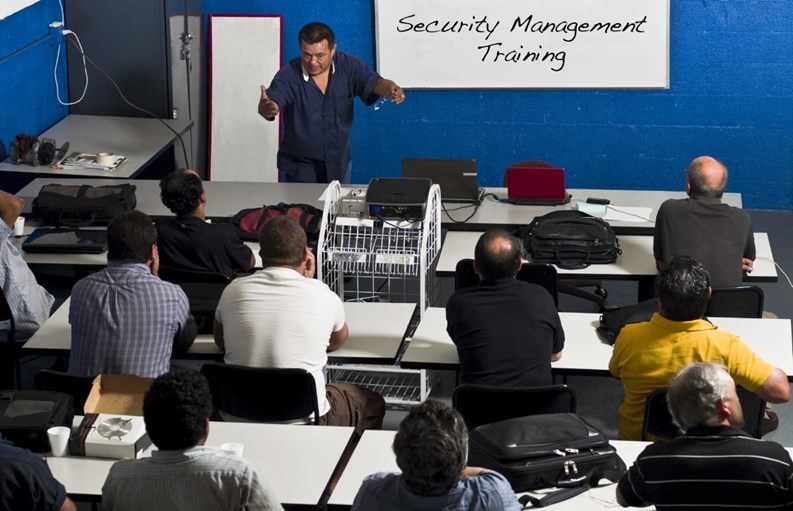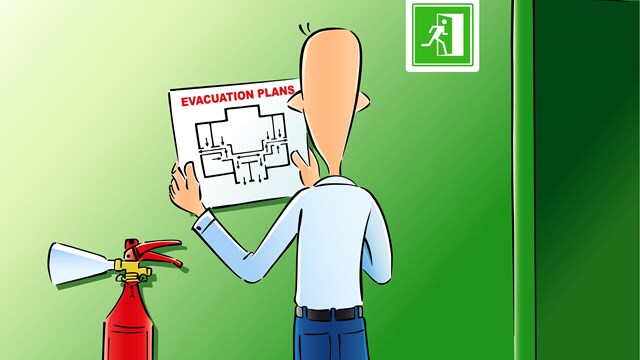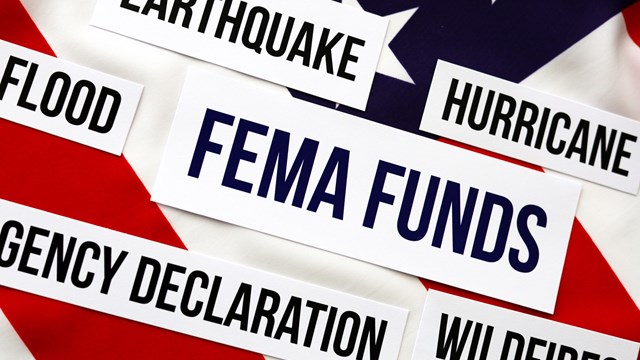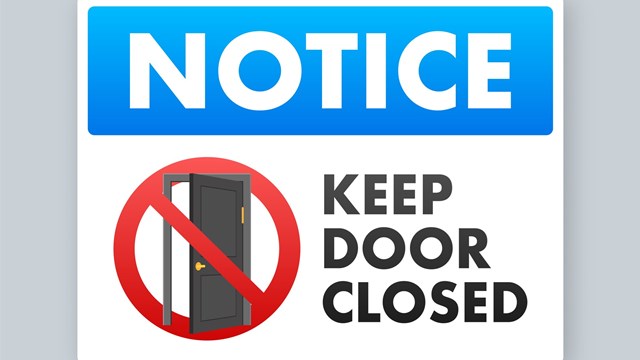Whether a building or association is located in a bustling urban environment or in a quiet leafy suburb, safety and security are always toward the top of residents' list of concerns. For HOAs, townhome and condo communities, addressing this means not only providing residents a safe and secure place to live, but staffing it with workers who know what to do in case of an emergency.
Boards and property managers may be the ones to map out their building security and emergency plans, but most likely, building staff members such as superintendents, doormen, maintenance crews, security guards, and others will be the ones to actually carry out those plans, or be the first responders in case of an emergency.
Staying Secure
Many people specifically seek out buildings and associations with doormen or guard staff because they feel safer and more secure knowing there’s somebody on watch at all times. A doorman is frequently considered to be the first line of defense in a community. They know the residents and their habits, and over time get to know the regular visitors to the building.
There are some co-ops and condos that employ an on-site security guard or someone with similar responsibilities. While in year’s past, almost anyone could have been hired for these positions, recent legislation has stipulated that only trained professionals are doing the guarding. If another employee in the building takes on the responsibilities of the security guard and an incident happens, it could put the building community at risk.
Be Aware
There are a number of security issues and emergency situations that building staff members should be prepared to encounter. It could be a fire in an individual unit, an attempted robbery, or a city-wide blackout. Staff members must be properly trained to recognize threats, keep themselves and residents safe, and contain whatever potential damage an emergency might cause.
Staff members, depending upon their training and ultimately, building policy and procedures, mostly act in an “observe and report” role. In a criminal incident, for example, most staff members call the police and render immediate first aid only—they are not expected to intervene physically or put themselves at risk for injury or death. In fire emergencies, policy and procedure generally dictate that staff members should only notify the fire department and respond to help persons from a safe distance—not grab a bucket of water and wade into an inferno.
According to Patrick Amaral, president and CEO of the New Jersey Guard Training Academy in Clifton, New Jersey does require guard training. “Our core business is providing training for the [state-mandated] Security Officer Registration Act (SORA),” says Amaral, “but we also do things such as sexual harassment training, workplace violence training, and CPR first aid—all very important things for a security officer to know in an environment where you're dealing with a large concentration of people. It's also very important that security officers understand and know how to operate the tools that are around them, such as security systems, CCTV systems, and fire alarm systems. With modern technology, things are getting quite sophisticated, and ensuring that your personnel knows how to use those tools effectively is critical.”
Amaral adds that the most common types of emergencies can be either internal or external. “Internally, you might have things like a fire, or family disturbances, which unfortunately are very common right now during the holidays,” says Amaral. “Externally, you're looking at things like theft, car vehicle break-ins, vandalism. Those are the two major areas that a quality security company will need to make sure that there is fundamental training on.”
The biggest crisis however, is not fire, or theft, says Amaral, but water. “The biggest thing that we teach during all of our SORA classes is the danger of water. Water damage is the number-one cause of loss to businesses and property managers in the U.S., and it's something that facility managers and building managers overlook. If you would reflect back into your own home, it's a smaller situation. But how many water leaks have you had? We've all had them. How many fires have you had? If you look at that on a larger scale, in a building or a complex, you have a pipe break, and it's thousands of dollars worth of damage. And it could cause people to slip and fall as well, and hurt themselves.”
There also more unusual scenarios, Amaral continues. “You have things such as hostage scenarios,” he says, “or things like gas line situations like in Edison, where a major underground pipeline broke. You still need to plan for the rare situation that may not be within your control. A lot of apartment complexes have railroad tracks behind them. What happens if there is a train accident behind and you have a chemical spill? Those are the things that each facility or property manager needs to do a risk assessment and say, 'This doesn't happen frequently, but it happens frequently enough that we need to have a plan in place.' It's something that a good property manager or security manager pays attention to.”
Training Time
“Not being prepared is the primary mistake made by most building staff members,” says Joseph Ferdinando, president of Building Security Services, Inc., a security firm with offices in West Orange and Cherry Hill. “This can be avoided with a proper training, demonstrations and drills as well as a written standard of procedure manual which covers as many situations as possible.”
So how to remedy this potentially deadly situation? There are literally thousands of security/emergency training programs building administrators can choose from—how can a board/management team pick the best one for their needs and staff?
The Federal Civilian Emergency Response team, which are a part of FEMA, provides a seven-week course on emergency training, and according to Ferdinando, there are other resources too. “There are numerous places were building staff can obtain training or information,” he says, “such as Homeland Security (www.dhs.gov) and the American Red Cross (www.njredross.org). Local associations are also an excellent source, and so are private companies who specialize in emergency management. And of course your specific security provider is another resource as well.”
All the professionals stress that no matter what the situation, security and property managers must be trained to maintain their calm. With HOA employees and residents looking to them for instructions and guidance, it's vital that they need to manage their designated area, maintain composure, and make sure residents follow the association or building's evacuation or specific emergency plan.
Other Roles
Making sure building staff members are up to speed on evacuation procedures, emergency reporting policies, and other safety and security measures is largely the responsibility of the manager and board. Superintendents can be enlisted to help as well, training their staff and doing demonstrations—such as how to use a fire extinguisher, or how to shut down the boilers in an emergency, for example—as part of those employees' basic training.
The role of the property manager is that of an on-scene commander and liaison in emergency situations to help provide emergency responders with the vital information they need about the building when they arrive on scene. Managers may also want to consider offering incentives to employees who complete training courses. Offering incentives may provide a cost alternative to paying for training.
According to Ferdinando, “There are different rules and regulations based on different types of building structures, and board/management teams should be aware of all local and state codes that pertain to their building structures regarding fire, security, emergency and disasters. Managers are a very good source of information since most management companies’ deal with these local and state codes on a daily basis. That allows them to counsel the board.”
“A common mistake managers will make is writing out these wordy procedures,” says Timothy M. O'Brien, president of Criminal Intelligence Administration, a security firm in New York City. “Procedures should be simple—short and to-the-point. A one-page procedure is far more valuable than pages and pages.Depending upon the emergency, structural information, building layout, resident information and occupancy levels may prove necessary to save lives. During day-to-day operations of a building, managers must ensure reasonable security precautions are taken to protect residents and visitors of the property. This reasonable standard is not only a moral obligation but legal as well.”
As for training staff members, “The board/management teams are only legally responsible for meeting the local and state codes that affect their building,” adds Ferdinando, “but they should realize that during a legal dispute they could be held responsible for providing adequate security and safety for their visitors and residents. The phrase 'adequate security and safety' is a broad statement, but is a major factor in litigation—and definitely something to think about.”
Drill Baby, Drill
Safety and security professionals agree that one of the best ways to make sure your HOA staff members know the drill in an emergency is to, well, drill. Merely telling people what to do and where to go isn't enough—physically walking through various scenarios and protocols can not only help staff members commit their roles and responsibilities to memory, but can expose weak points in the plan and enable you to address them before a real emergency arises.
“Demonstrations and drills are extremely useful in learning how to effectively protect the residents and property should a security crisis or disaster occur,” says Ferdinando. “It’s the old saying: 'If you don’t use it, you lose it.' During drills, your staff members are able to adjust their standard operating procedures to ensure that if there should be a security issue or disaster they are prepared with the right information to give support to the residents or local authorities.”
But drills are not easy and cost money, plus you can’t have your entire population running out of the building at one time. “Drills offer the best way to test and practice the accuracy and validity of an established procedure,” O’Brien says. “However, great care should be taken when coordinating emergency response drills. Managers should consider the inherent disruptive nature of the drill and check with their association's counsel regarding the legal ramifications should an injury or other incident occur.”
Final Thoughts
Regardless of the training resources and methods your building or HOA uses, security and emergency management professionals agree that the most important thing—and something that only gets better as your staff gets more comfortable and well-trained in your community's emergency action plan—is not to panic in the face of a crisis. Calm responses and cool heads during an emergency scenario of any kind can make the difference between a crisis and a calamity. Panic as a human response may not be eliminated but it can be reduced by holding formal training sessions, reviewing safety procedures and conducting drills and demonstrations on a regular basis.
Keith Loria is a freelance writer and reporter, and a regular contributor to The New Jersey Cooperator.







Leave a Comment